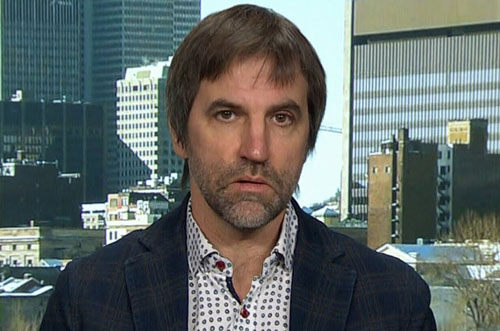by WorldTribune Staff, February 4, 2020
Canada’s heritage minister is now walking back comments he made on Sunday which indicated the leftist Trudeau administration would require all news websites in Canada to obtain a government license, reports say.
Heritage Minister Steven Guilbeault told CTV on Sunday that “audio, audiovisual, and alphanumeric news content” to Canadians should be regulated through some form of a license or registration.

“If you’re a distributor of content in Canada and obviously if you’re a very small media organization the requirement probably wouldn’t be the same if you’re Facebook, or Google. There would have to be some proportionality embedded into this,” said Guilbeault in the Sunday interview with CTV. “But we would ask that they have a license, yes.”
By Monday morning, Guilbeault had backtracked and stated that the licensing recommendation wouldn’t apply to news media outlets and that he was referring to outlets that produce and distribute content.
Conservative leader Andrew Scheer on Monday asked Prime Minister Justin Trudeau about his minister’s comments.
“George Orwell’s ‘1984’ was supposed to be a cautionary tale about the evils of big government, not an instruction manual for this prime minister,” said Scheer.
Trudeau responded: “I want to be unequivocal. We will not impose licensing requirements on news organizations, nor will we regulate news content.”
Conservative member of parliament Michelle Rempel Garner said it was unacceptable that Guilbeault suggested he needed to clarify the government’s position on account of public confusion.
“I think that the government has to be very clear about one thing: that the role of the state is to not interfere in people’s right to free speech, or the freedom of the press,” Rempel Garner said.
Guilbeault on Monday said “Media’ can be confusing, I recognize that, because the report talks about media, but not necessarily in the sense necessarily of news agencies and maybe the confusion comes from there.”
When asked to define what the report means by “media content,” Guilbeault said “the important answer is not what my definition is, but in the report, they refer to media as anyone who produces content, and then they say that for news agencies, there will be no licensing required.”
Guilbeault was unable to say how the legislation being considered would make the distinction between which organizations qualify as credible or trusted news sources, CTV noted.
“The globalists and international left will not stop until they have complete control over your every thought,” Jim Hoft wrote for Gateway Pundit on Feb. 3. “This should scare the hell out of Canadians!”
Similar moves toward limiting free speech online have been made in Europe. An October ruling by the Court of Justice of the European Union allows governments to Facebook to remove content.
The ruling came after an Austrian liberal politician was insulted online.
Eva Glawischnig-Piesczek, a leading figure in Austria’s left-progressive Greens Party, was branded a “lousy traitor of the people” and a “corrupt oaf”, among other things, in an Austrian news article concerning her party’s support for a minimum income for refugees which was shared on a Facebook user’s personal page, according to court documents.
Breitbart News reported that the Green politician demanded Facebook Ireland, which manages Facebook in Europe, remove the offending post, and secured an Austrian court order commanding it when the U.S. subsidiary failed to comply — but was not satisfied when Facebook only restricted the content in Austria.
The Court of Justice of the European Union decreed that censorship orders issued by an EU state can apply globally, as EU law “does not preclude [a] host provider from being ordered to remove worldwide information disseminated via a social network platform.”
The EU judges rejected Facebook’s arguments that this would curb online free speech in third countries which do not allow the sort of state censorship which Glawischnig-Piesczek demanded.
The judges also ruled that EU does not “preclude a host provider which operates a social network platform from being ordered, in the context of an injunction, to seek and identify, among all the information disseminated by users of that platform, the information identical to the information that has been characterized as illegal” — i.e. other content repeating the “illegal information” about Glawischnig-Piesczek.
Intelligence Brief __________ Replace The Media
